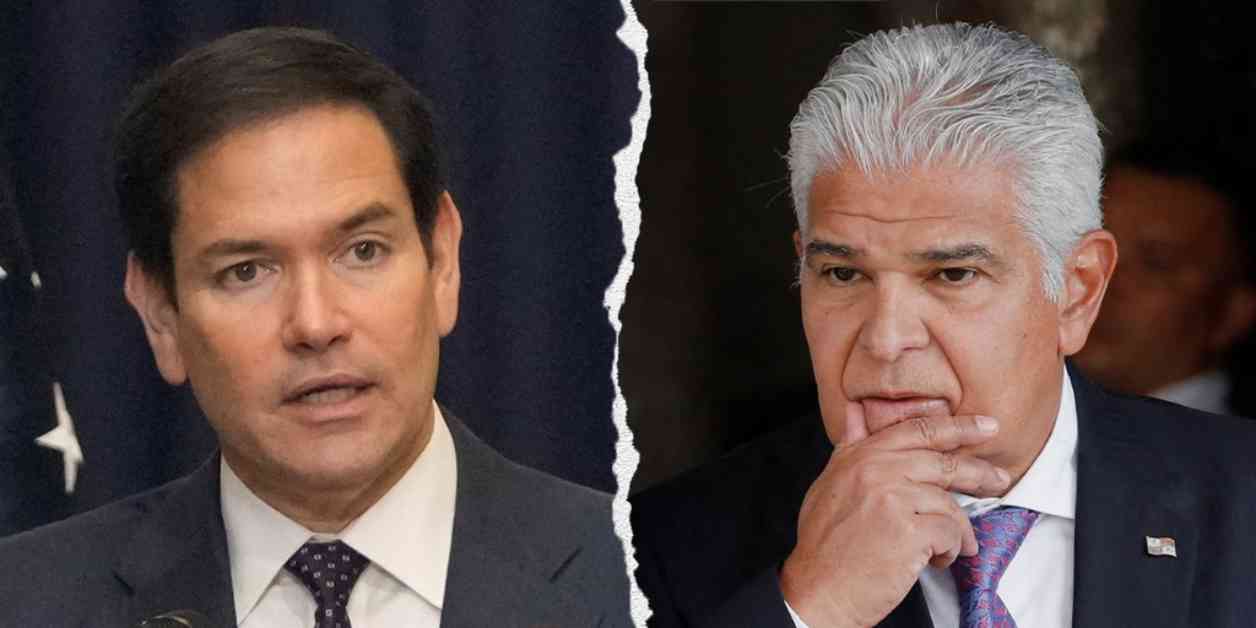Panama’s president, José Raúl Mulino, made a significant announcement on Sunday, declaring the end of a key development deal with China. This decision came after a meeting with Secretary of State Marco Rubio and in response to concerns raised by President Donald Trump about China’s control over the Panama Canal. Mulino emphasized that Panama’s sovereignty over the vital 51-mile waterway connecting the Pacific Ocean and the Caribbean Sea would not be compromised. However, he revealed that the 2017 memorandum of understanding to join China’s Belt and Road global development initiative would not be renewed, signaling a shift towards strengthening ties with the United States.
Panama’s Strategic Decision to End Canal Deal with China
The decision to sever ties with China and prioritize collaboration with the U.S. was made clear by President Mulino in his statement following the meeting with Secretary Rubio. Mulino expressed the desire to build new relations and increase U.S. investments in Panama, highlighting the importance of this strategic shift. This move not only underscores Panama’s commitment to safeguarding its national interests but also signifies a diplomatic realignment with significant implications for global geopolitics.
During his visit, Secretary Rubio reiterated the United States’ stance on preventing Chinese dominance over the Panama Canal area. He emphasized the need to counter China’s growing influence in the region, echoing concerns raised by President Trump. The issue of China’s control over the canal, coupled with exorbitant toll charges on U.S. vessels, has been a point of contention, prompting legislative action and diplomatic efforts to address these challenges.
Legislative Response and Implications for U.S. National Security
In response to President Trump’s concerns, House Republicans introduced the Panama Canal Repurchase Act, spearheaded by Rep. Dusty Johnson. The bill seeks to empower the president to engage in negotiations with Panama to reacquire ownership of the canal, citing national security implications and the need to counter China’s presence in the region. Johnson emphasized the strategic importance of owning and operating the canal as a means to project American strength abroad and secure vital interests in the global arena.
The U.S. Department of State estimates that a significant portion of vessels passing through the Panama Canal are either originating from or heading to U.S. ports, highlighting the waterway’s critical role in facilitating maritime trade and defense operations. The strategic value of the canal as a transit point for U.S. Coast Guard and Department of Defense vessels underscores the imperative of safeguarding American interests in the region. Without access to the canal, ships would be compelled to navigate an additional 8,000 miles around South America, posing logistical and economic challenges for maritime traffic.
In addition to addressing the canal’s strategic significance, Secretary Rubio’s discussions with Panamanian officials also encompassed broader issues such as tackling mass migration in the hemisphere and promoting fair competition for U.S. businesses. The multifaceted nature of the diplomatic engagement underscores the interconnectedness of regional challenges and the imperative of collaborative solutions to foster stability and prosperity in the Americas.
In conclusion, Panama’s decision to terminate its deal with China and strengthen ties with the United States marks a pivotal moment in the geopolitical landscape of the Western Hemisphere. The strategic realignment reflects Panama’s commitment to safeguarding its sovereignty and national interests while signaling a broader shift in regional dynamics. As the U.S. and Panama navigate this diplomatic transition, the implications for global trade, security, and cooperation remain paramount, underscoring the need for continued dialogue and strategic engagement to address shared challenges and opportunities.
For Fox News Digital, Stepheny Price reporting. Contact stepheny.price@fox.com for story tips and ideas.


